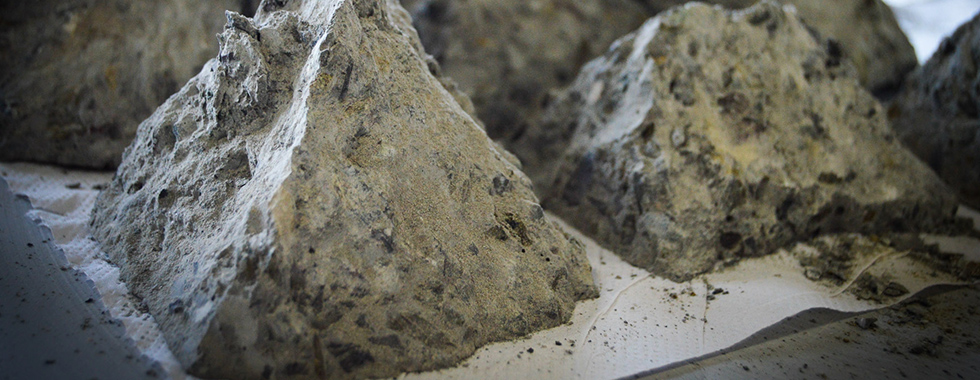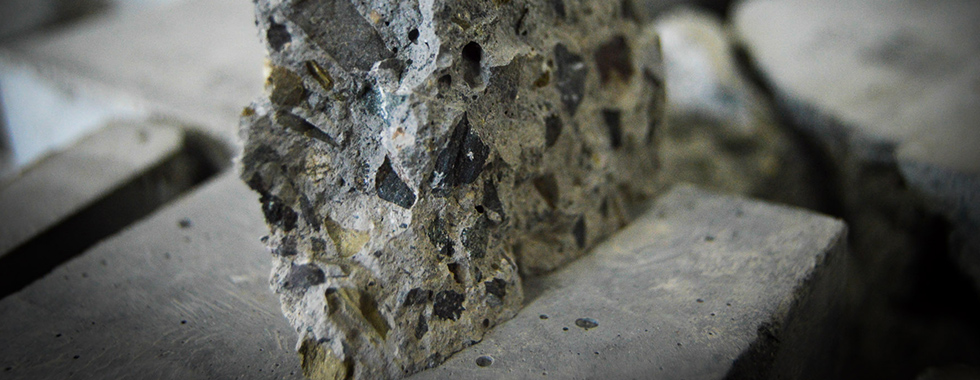concrete and stones
Characterization techniques of concrete and stone.
Mechanical characterization
The LADICIM has a set of universal mechanical testing machines equipped with load cells ranging from 2.5 kN to 1000 kN (with dynamic capacity) or 2000 kN for static loading. These machines allow a wide range of tests on compression, bending, indirect tensile or fracture tests of structural components to be carried out. The stones usually characterized in the LADICIM are: natural and recycled aggregates, samples of drilling concrete and natural stone, mortars specimens and cement and quicklime pastes.
The laboratory also has equipment for the manufacture of concrete, specimens curing, sulfur capping and polishing devices, sensors for the measurement of microdeformations and machines for fatigue tests at low and high frequencies.

Characterization of physical properties and durability
LADICIM has environmental chambers and furnaces for performing accelerated aging tests and devices for the determination of physical properties such as density, porosity and absorption coefficient and for the determination of the permeability to water and gases. This equipment, together with the knowledge of the group, makes the mechanical and durability tests of concretes and stones one of the main activity areas of the LADICIM, offering services to all types of companies in the building, prefabrication and rehabilitation markets. The capabilities of the laboratory make it possible to characterize samples of small and large sizes.
Construction waste valorisation
LADICIM has provided services to companies and participated in research projects whose objective has been the valorisation of construction and demolition waste, waste from the prefabricated concrete industry and industrial by-products, such as steelmaking slag and foundry. With these materials, it has been possible to develop self-compacting and high-resistant recycled concretes and mortars, which implies a great environmental benefit. These collaborations have resulted in the publication of several Doctoral Theses and scientific papers.
Scanning Electron Microscopy (SEM) and micro-tomography (μCT)
LADICIM has a Zeiss (model EVO MA 15) scanning electron microscope (SEM). The electron acceleration voltage reaches 30 kV and the magnification varies between x7 and x106. It has a microanalysis system based on dispersive energy spectroscopy (EDS) that allows the chemical nature of the analysed materials to be determined. In addition, LADICIM has a Bruke (model Skyscan 1172) computerized axial micro-tomograph (μCT). The most relevant technical characteristics are: X-ray camera of 11 Mp with correction of total distortion, up to 8000 × 8000 pixels in each layer, isotropic detail detectability up to 0.7 μm and software for 2D and 3D image analysis. Microscopy and tomography allow, among other applications, to identify the mechanisms of rupture, the porosity of the material or to discover defects on a microstructural scale.





